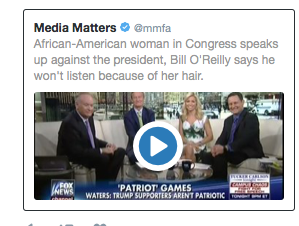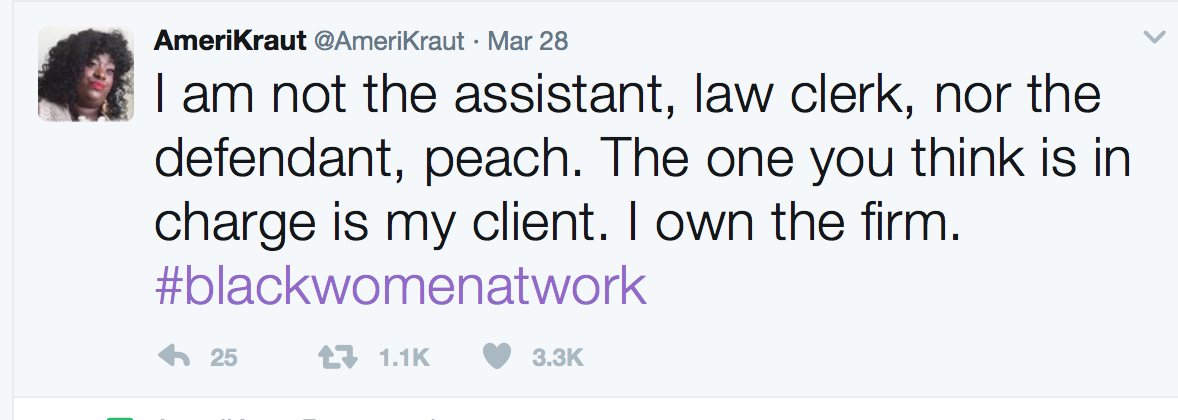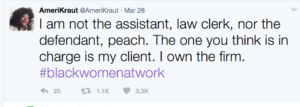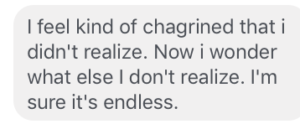What sits beyond unconscious bias?
Diversity & Inclusion 4.0 – Redistributing the power to create our predominant narratives.
Beyond Unconscious Bias – Why We Need to Go There
What informs my narrative?
I am a college educated professional white woman, living in one of the most liberal of the 50 United States. This influences my experience and my perspective. I’m grateful for the relationships and experiences that help me dig into unconscious bias, including the politics of power, privilege, non-privilege, economics and more.
I can’t truly know what it’s like to occupy a position on this power spectrum that’s different from my own. I may not even know how to ask questions that would better inform me. I will probably write something offensive to someone, possibly to many someones. If you’re one of those someones, I invite your comments as a way to help build a more multi-faceted narrative.
Reflections on the week of 3/27/17
We begin with reference to Bill O’Reilly’s remarks pointed at Congresswoman Maxine Waters. But we move on quickly to explore the softer underbelly of narrative power. What happens when you do, or don’t, have the power to define the narrative surrounding what O’Reiily said, and the narrative about our world in general. Let’s examine who typically has that power. Then, how it can, and did, shift.
Consider this tweet

The “African American Woman” is no other than Congresswoman Maxine Waters, O’Reilly’s target. In what newspaper, on which social media site, radio or TV show is a white congressman referenced simply as “White Man”? None. He is respectfully identified by his position, followed by his name, as in Speaker Paul Ryan. Not, White Man.
Then there was the radio interview with Teach For America vice president Brittany Packnett, creator of #BlackWomenatWork. The well-intentioned interviewer asked Packnett,
“Have black women have made any progress?”
Why that question? How did black women end up in a position from which they need to progress? Who’s responsible? Black women? The world around black women? Why not ask:
Have white people made progress in the way we see ourselves; the way we see and respond to black women?
How to Redistribute Narrative Power
Packnett says she “wanted the hashtag to make the invisible visible, to challenge non-black people to stand with black women not just when this happens on television, but in the cube right next to them.” (Huffington Post)
IMRHO, she’s succeeding.
A white woman friend who’s following the #, sent me this note.
To find our blindness we have to see and hear different voices. This, in turn, takes us beyond unconscious bias and redistributes the power we grant others to create our narrative.
To participate in this redistribution of power, we:
- Seek, listen to, understand, and empathize with previously unheard voices
- Become aware of different narratives
- Realize we’ve granted some people, mostly people like us, the power to create our predominant narrative
- Recognize the influence of a given narrative on how we see the world, and how we don’t
- Discover how a different narrative leads to different actions and a world in which we might ask,
Have white people made progress in the way we see and respond to black women?




